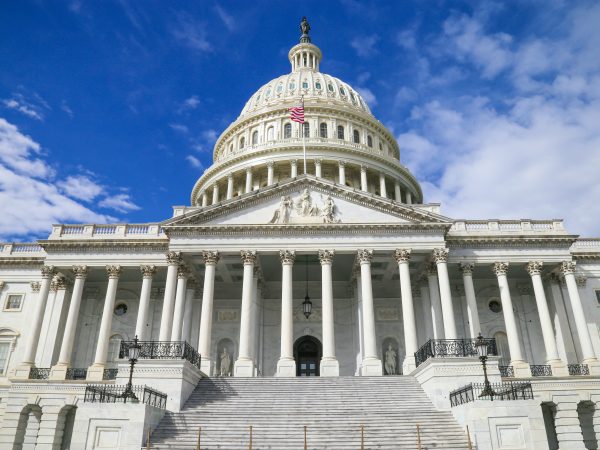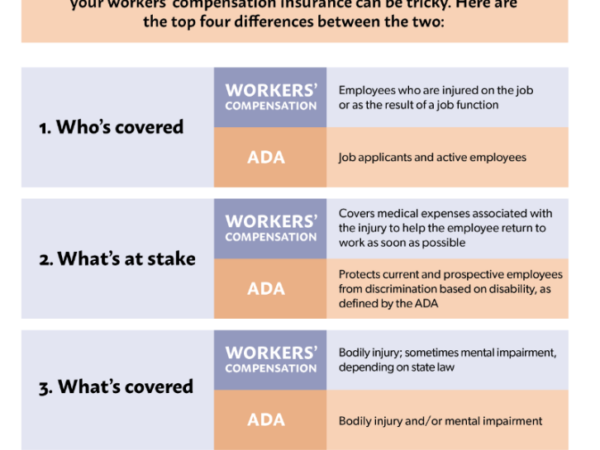 SB 1159 amends existing workers’ compensation laws to address the impact of employees who contract COVID-19 and the extent that such illness is considered industrial, and therefore entitles the employee to workers’ compensation benefits.
SB 1159 amends existing workers’ compensation laws to address the impact of employees who contract COVID-19 and the extent that such illness is considered industrial, and therefore entitles the employee to workers’ compensation benefits.
Standards for Application of Workers’ Compensation Rebuttable Presumption for an Employee’s COVID-19 Illness
Employees injured in the course and scope of employment are generally entitled to receive workers’ compensation benefits for their injuries. Existing law establishes a series of specific injuries and illnesses for certain public safety employees that are presumed to be industrial in nature and create a rebuttable presumption that will qualify them for workers’ compensation benefits immediately, unless an employer can provide sufficient information to indicate that the injury or illness is non-industrial.
Recognizing the unique challenges posed by the COVID-19 global pandemic, SB 1159 now creates a similar presumption for illness or death resulting from COVID-19 in the following three circumstances:
- The bill codifies Executive Order N-62-20, issued by Governor Newsom on May 6, 2020, which expanded the workers’ compensation rebuttable presumption to ANY employee who reported to their place of employment between March 19 and July 5, 2020, and who tested positive for or was diagnosed with COVID-19 within the following 14 days during that time period.
- This rebuttable presumption is then extended beyond July 6, 2020, for firefighters, peace officers, fire and rescue coordinators, and certain kinds of health care and health facility workers, including in-home supportive services providers that provide services outside their own home. For health facility employees other than those who provide direct patient care, and other than custodial employees in contact with COVID-19 patients, the presumption does not apply if the employer can show the employee did not have contact with a COVID-19 positive patient within the 14-day period.
- For all other employees, the rebuttable presumption is only applied if the employee works for an employer with five or more employees and the employee tests positive for COVID-19 within 14 days after reporting to their place of employment during a COVID-19 “outbreak” at the employee’s specific work place. For purposes of this presumption, a COVID-19 “outbreak” exists if within 14 calendar days one of the following occurs at a “specific place of employment” (which excludes the employee’s home):
- If the employer has 100 employees or fewer at a specific place of employment, 4 employees test positive for COVID-19;
- If the employer has more than 100 employees at a specific place of employment, 4% of the number of employees who reported to the specific place of employment, test positive for COVID; or
- A specific place of employment is ordered to close by a local public health department, the State Department of Public Health, the Division of Occupational Safety and Health, or a school superintendent due to a risk of infection with COVID-19
For purposes of administering this “outbreak” presumption, SB 1159 requires employers to report to their workers’ compensation claims administrator in writing within three business days when they know or reasonably should know that an employee has tested positive for COVID-19, along with other relevant information.
The Workers’ Compensation Appeals Board (“WCAB”) is bound by these presumptions unless presented with controverted evidence to dispute the presumption. Workers’ compensation awarded for covered COVID-19 related illness or death includes full hospital, surgical, medical treatment, disability indemnity, and death benefits. The bill also makes a workers’ compensation claim relating to a COVID-19 illness presumptively compensable, as described above, after only 30 days, rather than the standard 90-day time period for all other types of workers’ compensation claims.
Application of Other COVID-19 Paid Benefits and Duration of New Law
However, SB 1159 requires an employee to exhaust any COVID-19 related supplemental paid sick leave benefits (e.g., FFCRA’s Emergency Paid Sick Leave or California’s supplemental paid sick leave under AB 1867) and meet certain certification requirements before receiving temporary disability benefits or an industrial injury leave of absence.
In addition, the effective timeframe for workers’ compensation benefits under SB 1159 based on illness or death due to COVID-19 is limited, as the law will remain in effect only until January 1, 2023, after which the law will sunset and be repealed unless extended further by the Legislature.
SB 1159 also requires the Commission on Health and Safety and Workers’ Compensation to conduct a study of the impact of COVID-19 on the workers’ compensation system, to deliver a preliminary report to the Legislature and Governor by December 31, 2021, and to deliver a final report to the legislature by April 30, 2022.
Impact of SB 1159 on Employers
As SB 1159 is now law, employers need to be vigilant and prepared to respond to any indication that an employee has contracted COVID-19 and should coordinate with their workers’ compensation insurance carriers and claims adjusters to establish best practices for reporting and responding to potential workers’ compensation claims based on COVID-19.
(SB 1159 adds Sections 77.8, 3212.86, 3212.87, and 3212.88 to the Labor Code.)


